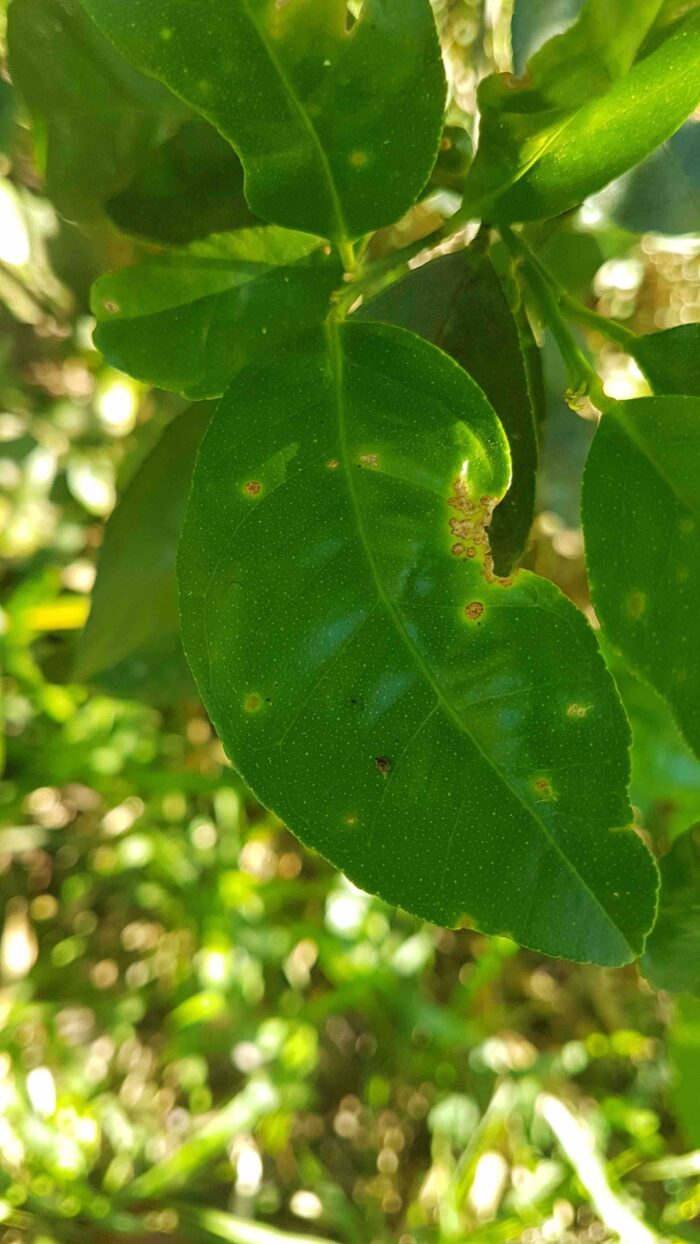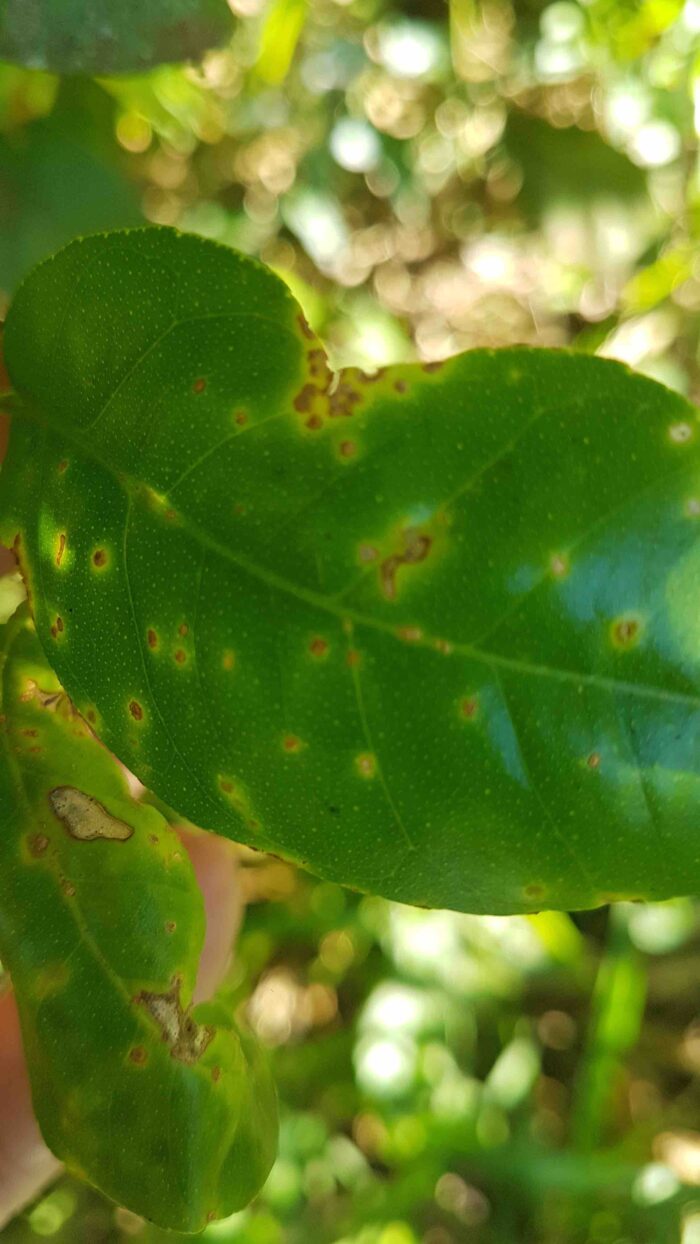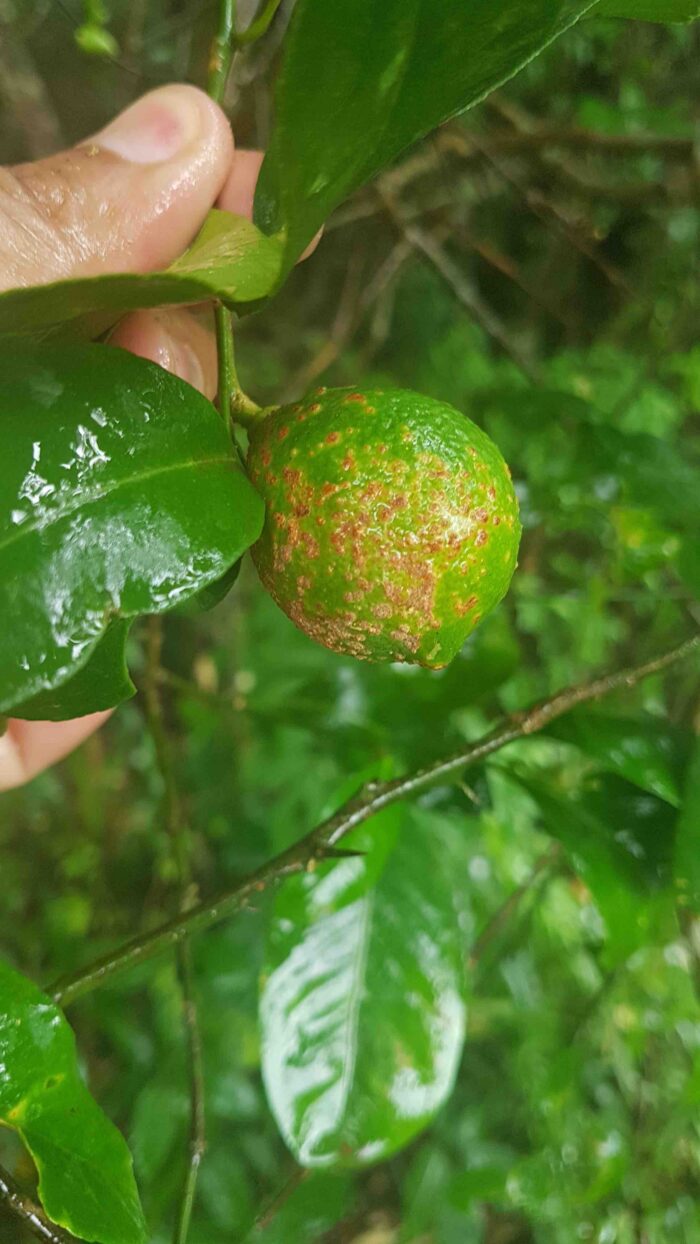గజ్జి తెగులు
Citrus
Citrus canker is caused by a bacteria that penetrates citrus trees through stomata or wounded tissue.The disease favors high humidity that is combined with warm weather conditions. Citrus canker can spread by winds, rain or water splashes, and it can be transmitted mechanically through using contaminated tools.
Initial symptoms of citrus canker are small lesions on leaves that might resemble blisters. Later on, the blisters develop into brownish necrotic-like elevated corky lesions often surrounded by a yellow halo. On twigs, citrus canker appears corky, which is often surrounded by water-soaked margins. On fruits, citrus canker appears as brown scab-like or corky lesions and appear as elevated tissue.
Generally speaking, once a tree is infected with the bacteria, the tree begins to slowly decline towards the death. The fruits and foliage tend to drop prematurely and infected fruits that have canker signs are not marketable. Citrus canker has the ability to decimate entire orchards and poses a huge risk to the whole citrus industry.
పారిశుధ్యం: కలుపు మొక్కలు, మొక్కల శిధిలాలు, దెబ్బతిన్న భాగాలు, అవాంఛిత మొక్కల పెరుగుదల మరియు దగ్గర్లోని పండించని మరియు అసురక్షితమైన మొక్కలను తొలగించడం ద్వారా పంటల సమీప పరిసరాలను చక్కగా ఉంచండి.
వ్యాధి వ్యాప్తి చెందకుండా నివారించడానికి సోకిన ప్రాంతాల్లోని సామగ్రి మరియు పనివాళ్ళు క్రిమిసంహారక ప్రక్రియ పాటించాలి.
శారీరక అవరోధాలు చెట్లతెగులు వ్యాప్తిని తగ్గించడంలో సహాయపడతాయి, ముఖ్యంగా స్థానిక పరిస్థితులలో, కొత్త సంక్రమణల యొక్క గణనీయమైన భాగం గాలి-వీచే వర్షాల వల్ల సంభవిస్తుంది.
సమర్థవంతమైన రసాయన నియంత్రణ లేదు. రాగి-ఆధారిత ఉత్పత్తుల యొక్క అనువర్తనాలను తరచుగా పిచికారీ చేయండి, ఇది పండ్లు మరియు ఆకులను రక్షించడంలో మరియు వ్యాధిని అణిచివేయడంలో సహాయపడగలదు.
సొరంగాలు ఆకు కణజాలాలను సంక్రమణకు గురిచేస్తాయి కాబట్టి ఆకు దొలిచే పురుగును నియంత్రించడం చాలా ముఖ్యం.
*Names marked in red are considered to be highly poisonous to beneficial insects.
*Names marked in green are considered to be organic and IPM (integrated pest management) compatible.
Image Gallery


